GUATEMALA CITY – I have spent the past week making contacts, getting the lay of the land and working on freelance stories, and I couldn’t have found a better home-away-from-home here in the capital city than Hotel Ajau.
I’ll admit I chose it because I read in Rough Guides that it offered a good price, free wireless, good coffee and a nice atmosphere in the historic district. Little did I know that I had inadvertently chosen the city’s first “green” hotel – at least the first to be certified as such by Guatemala’s Green Deal organization.
Nor did I know it was the labor of love of three generations of French-Guatemalans. Three generations of the Luis Rey Tarot family have infused this elegant historic neo-colonial building (or republican, as it’s called here) with a sense of home.


Left to right: Silvia , Maria Isabel and Luis Rey Tarot II.
It all began with a French immigrant who decided to flee the violence of World War II and cast his lot in the in the coffee-growing region of Alta Verapaz, Guatemala. His grandson, Luis Rey Tarot I, moved to the city in the late 1980s, bought the grand old house, fixed it up and dedicated it to his grandfather, decorating it in the style of an old coffee plantation house. The hotel’s name was a Quiché Maya twist on the family name, “Rey” or “King;” Ajau means king in Quiché.
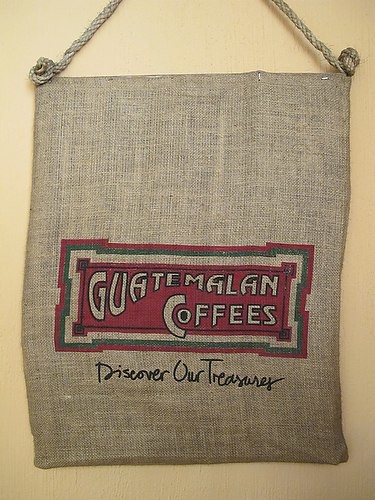
“There were already a number of hotels with the name ‘Rey,’ and we were looking for something different. So we thought back to our homeland, and came up with ‘Ajau,’” said Luis I, whom I met on my second day as he worked behind the counter.
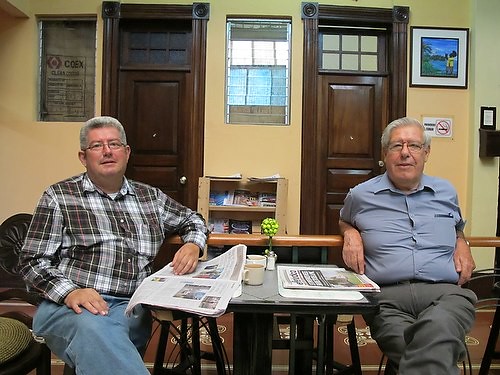
Luis II, left, and Luis I, right.
“Are you the owner?” I asked the kindly, European-looking gentleman. “No,” he laughed. “I’m just another worker, like everyone else.” It wasn’t until days later that I realized he was the hotel’s founder.
It was the second Luis Rey Tarot, the one who is now in charge, who implemented the hotel’s environmental policy. The family switched over to biodegradable cleaning supplies and trained the workers in how to use them effectively; they’ve converted much of the lighting to energy-efficient fluorescent and continue to do so; and they’ve established recycling bins throughout the hotel for paper, plastic and other receptacles, and wife Silvia de Rey collects the contents daily and drives them home, where there’s space to keep them for the weekly pickup. Recycling has cut back their waste disposal to a third of what it once was.
The hotel’s café provides local and regional products as much as possible, including coffee from cooperatives in Coban and Antigua and honey from Ixcan. Daughter Maria Isabel is working on a flier for hotel guests that will explain how they can be more environmentally sensitive while enjoying their travels in Guatemala.
They began the process a decade ago when Luis first took over the hotel. “I grew up bathing in the rivers of my family homeland in Coban,” he said. “You can’t do that anymore; they’re all becoming polluted. I wanted to do something about that.”
The family was rewarded with official recognition when they became the first hotel in Guatemala City to receive the Green Deal certification. This program required certification applicants to comply with certain guidelines in three categories: social, environmental, and worker relations.
“It’s important to realize the most important part of a hotel is the workers,” said Luis II. For that reason they subsidize health care expenses for workers and their families, provide special services like eye exams and glasses, and try to provide a family environment for everyone. And indeed the workers have been the ones who have done the most to make me feel at home.
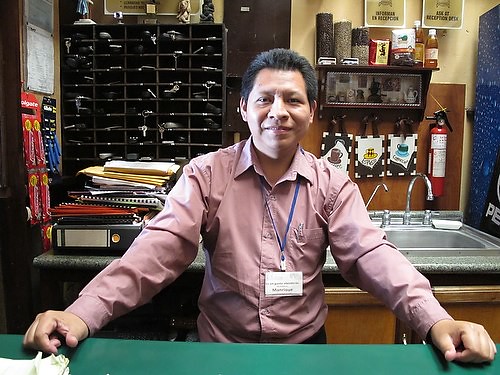
Manrique Vasquez, receptionist, who is also studying to be a radio broadcaster.
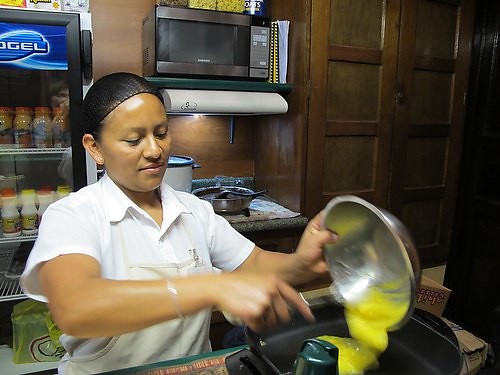
Floridalma Reyes, the excellent chef.
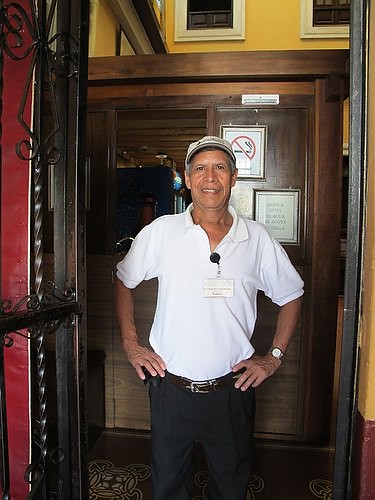
Pablo Santos, the watchful security man.
It’s been a challenge to run a green business in Guatemala, they say – in part, because the government offers no support or incentives or even tax credits for businesses that want to make a shift to more sustainable practices. Eco-friendly products like compact fluorescent light bulbs and biodegradable cleaning products are hard to get and much more expensive here. There’s also a lack of information about products and options locally, and doing your own research can lead to some costly mistakes, they’ve found.
For example, there was the time they invested in compact fluorescent bulbs for the public areas – but the wattage was too low and guests complained that the areas were dark. Then they bought the fluorescent rings, only to discover that they contained mercury.
Sometimes the answers are closer to home, however, Silvia went to an environmental seminar and learned that she could cut back on water consumption by placing a brick or a bottle of water in each toilet tank.
“I came home all excited, ready to put bricks in all the tanks,” she laughed. “Unfortunately I found that there wasn’t room. There wasn’t even room for a small water bottle.”
After trying several approaches a worker asked her what she was trying to do.
“Oh, that’s easy!” he told her, and showed her how to adjust the flushing mechanism to allow less water to fill the tanks.
Of course, nothing is really easy in Guatemala, and the organization that administered the Green Deal program is now defunct, so they and other sustainable business owners are going through another process to be re-certified. The new program that will administer certification for sustainable businesses, GREAT Green Deal, will be CERTIFICA (Certificaciones de Centroamérica, S.A.)
I will be continuing to write about this program as it unfolds. Meanwhile, questions can be directed to CERTIFICA General Manager Carmen Perez at carmen.perez@sellosverdes.com or to the business promotor, Marlen Garcia, at marlen.garcia@sellosverdes.com. The group hopes to have a website of certified businesses up and running soon, and they’ve promised to keep me posted.
“The new certification process is not necessarily a bad thing, said Marlen Garcia. “It gives us another chance to connect with business owners that have demonstrated an interest in the implementation of best practices related to sustainable tourism and also have demonstrated social and environmental responsibility. Even though we and the owners have found that this new program is more rigorous than the last one, we agree that it will give more credibility to the efforts done by them before third parties and new markets.”
Meanwhile, the Reys are focusing on doing what they can to make their corner of the world a better place.
“We want our grandchildren to have the things we enjoyed when we were growing up,” said Silvia. “We have everything here in Guatemala – volcanoes, lakes, rivers, beaches – but we have to do a better job of conserving them.”
Created with Admarket’s flickrSLiDR.
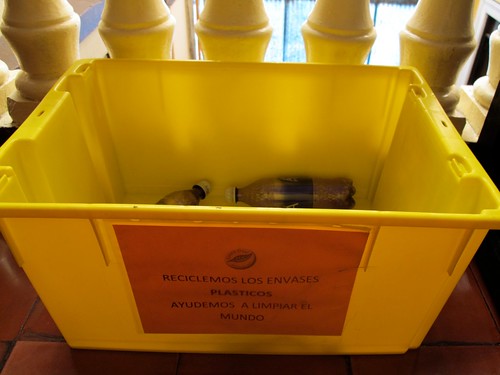
Leave a Reply